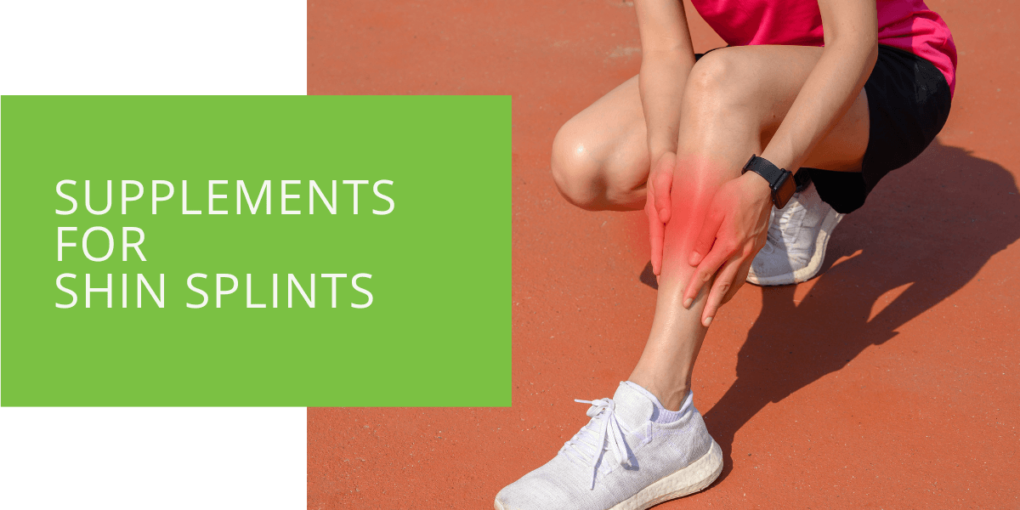Supplements for Shin Splints
Shin splints are a common overuse injury that causes pain along the shin bone. In this article, we will explore the role of supplements in treating and preventing shin splints, focusing on essential nutrients, anti-inflammatory options, and expert tips.
Understanding Shin Splints
Shin splints, technically known as medial tibial stress syndrome, occur when the muscles and tendons surrounding the shin bone become inflamed due to repetitive stress and overuse. Runners and athletes are particularly susceptible to this condition. Proper warm-up techniques, stretching, and appropriate footwear selection are crucial in managing and preventing shin splints.
Essential Nutrients for Shin Splints
Proper nutrition is vital in preventing and managing shin splints by supporting bone health and reducing the risk of stress fractures. Let's delve into greater detail about the essential nutrients that can contribute to shin health:
Calcium
Calcium is a critical mineral for maintaining bone density and strength. It is fundamental in preventing stress fractures, a common complication of shin splints. Adequate calcium intake through dietary sources or supplements is crucial for individuals who engage in high-impact activities.
Vitamin D Supplements
Vitamin D is essential for optimal calcium absorption and utilization. It helps regulate calcium levels in the body, promoting bone health and reducing the risk of stress fractures. Vitamin D deficiency has been associated with increased susceptibility to shin splints and stress fractures, especially in individuals with limited sun exposure. Therefore, supplementation with vitamin D is often recommended, particularly for those at higher risk.
Magnesium
Magnesium is a mineral that plays a vital role in muscle relaxation and contraction. It aids in preventing muscle cramps and maintaining healthy muscle function. Since shin splints can be caused by overuse and muscle imbalances, ensuring an adequate magnesium intake through diet or supplementation is essential for promoting proper muscle function and reducing the risk of shin splints.
Vitamin C
Vitamin C is a powerful antioxidant that supports the synthesis of collagen, a protein crucial for maintaining the health and integrity of connective tissues, including tendons. Adequate vitamin C intake may help prevent shin pain and injuries by supporting the strength and resilience of the tendons surrounding the shin bone. Including vitamin C-rich foods in your diet, such as citrus fruits, strawberries, and bell peppers, can be beneficial for shin health.

Anti-Inflammatory Supplements
Inflammation is a common component of shin splints and can contribute to pain and discomfort. Incorporating anti-inflammatory supplements into your regimen can help you manage shin splints more effectively. Let's explore in greater detail some of the supplements known for their anti-inflammatory properties:
Omega-3 Fatty Acids
Omega-3 fatty acids, particularly EPA (eicosapentaenoic acid) and DHA (docosahexaenoic acid), found abundantly in fish oil, have potent anti-inflammatory effects. These essential fatty acids can help reduce inflammation, alleviate pain, and support healing. By incorporating omega-3 supplements into your routine, you may experience a reduction in shin splint symptoms and improve overall shin health.
Turmeric
Turmeric contains an active compound called curcumin, which possesses strong anti-inflammatory properties. Curcumin has been studied extensively for its potential to reduce inflammation and relieve pain associated with various conditions, including shin splints. Supplementing with turmeric or curcumin extracts can help decrease inflammation in the shins, providing relief from discomfort and aiding in recovery.
Ginger
Ginger is another natural anti-inflammatory agent known for its beneficial effects on reducing inflammation and relieving pain. It contains compounds called gingerols, which possess potent anti-inflammatory properties. Incorporating ginger supplements or including fresh ginger in your diet may help alleviate inflammation in the shins and relieve shin splint-related discomfort.

Nutrients for Tendon Health
Strong and healthy tendons are crucial for preventing shin splints and related injuries. Let's delve into further detail about the nutrients that support tendon health:
Collagen Supplements
Collagen is the primary structural protein in tendons, providing strength and flexibility. Supplementing with collagen can enhance tendon health and resilience, reducing the risk of tendon-related injuries and shin splints. Collagen supplements are available in various forms, including powders, capsules, and liquid formulations, making them easily accessible for supporting tendon health.
Vitamin E
Vitamin E is a powerful antioxidant that is crucial in promoting tendon health. It helps protect tendons from oxidative stress and supports their repair and recovery. Adequate vitamin E intake through dietary sources or supplements can contribute to the maintenance of healthy tendons and reduce the risk of tendon-related issues, including shin splints.
B-Complex Vitamins
B-complex vitamins, including B6 and B12, are essential for energy production, nerve function, and tissue repair. They play a vital role in maintaining the health and integrity of tendons. Adequate intake of B-complex vitamins can support tendon strength, flexibility, and overall tendon health, reducing the risk of overuse injuries like shin splints.
By focusing on these nutrients and incorporating them into your diet or supplement routine, you can provide your shins with the essential building blocks for optimal bone health, inflammation reduction, and tendon support. However, it's important to consult with a healthcare professional or a podiatrist before starting any new supplement regimen to ensure it aligns with your needs and health status.
Remember, while supplements can be supportive, they should not replace a well-balanced diet and a comprehensive approach to shin splint management. Adequate rest, appropriate exercise techniques, proper footwear, and gradual progression of activity remain essential factors in preventing and managing shin splints.

Supplementation Considerations
While supplements can be beneficial in managing shin splints, it's important to approach them with caution:
- Consult with a healthcare professional, such as a podiatrist or physiotherapist, to determine the appropriate supplements and dosages for your needs.
- Consider the quality and safety of the supplements you choose, opting for reputable brands and ensuring they are free from contaminants.
- Be mindful of potential interactions with medications or existing health conditions.
Other Tips for Managing Shin Splints
In addition to supplements, several other strategies can help in managing and preventing shin splints:
- Select appropriate running shoes that provide adequate cushioning, support, and shock absorption.
- Use orthotic inserts or custom orthotics to align the feet properly and distribute pressure evenly, reducing the risk of shin splints.
- Gradually increase the intensity and duration of your workouts to avoid overuse and excessive stress on the shins.
- Incorporate cross-training and low-impact activities, such as swimming or cycling, to give your shins a break from high-impact exercises.
- Prioritize rest and recovery, allowing your body time to heal and repair. Listen to your body and take breaks when needed.
- If you experience tenderness or pain in your shins, apply ice packs or take over-the-counter anti-inflammatory medications to help reduce inflammation and discomfort.
Conclusion
Supplements can play a supportive role in managing and preventing shin splints. Essential nutrients like calcium, vitamin D, magnesium, and vitamin C promote bone health and reduce the risk of stress fractures. Anti-inflammatory supplements such as omega-3 fatty acids, turmeric, and ginger can help alleviate inflammation and pain. Nutrients like collagen, vitamin E, and B-complex vitamins support tendon health and resilience.
Remember, it's crucial to consult with a healthcare professional or podiatrist before starting any supplementation regimen, as they can provide personalized guidance based on your specific needs and ensure any potential interactions or contraindications are considered.
In addition to supplements, implementing proper warm-up techniques, wearing appropriate footwear, gradually increasing exercise intensity, and prioritizing rest and recovery are all essential in managing and preventing shin splints. By taking a comprehensive approach, you can promote shin health, reduce the risk of injury, and continue enjoying your active lifestyle.
Always prioritize your foot health and seek professional advice if you experience persistent or severe shin pain or discomfort. Your podiatrist can provide a thorough evaluation, diagnosis, and tailored treatment plan to address your shin splints effectively.
Key Takeaways
- Proper nutrition and supplements can support shin health and prevent shin splints, with essential nutrients like calcium, vitamin D, magnesium, and vitamin C playing crucial roles.
- Incorporating anti-inflammatory supplements such as omega-3 fatty acids, turmeric, and ginger may help reduce inflammation and alleviate pain associated with shin splints.
- Tendon health can be supported by collagen supplements, vitamin E, and B-complex vitamins, which contribute to tendon strength and flexibility.

